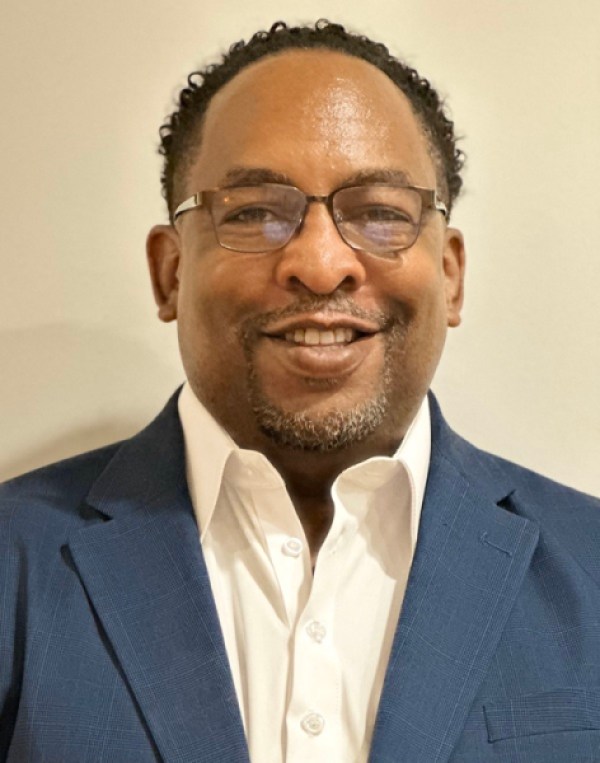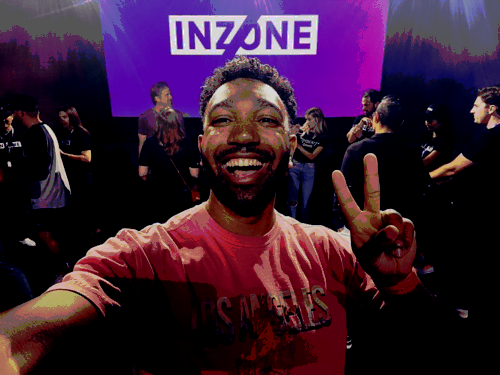Mirror Digital has built a business helping brands and advertisers reach its network of diverse multicultural content creators and influencers.
Founded in 2012 by CEO Sheila Marmon, Mirror Digital is a Black-owned digital media company that supports multicultural creators and the diverse voices unique to their cultures. It now represents more than 850 creators who use the web, mobile, social, video, and other emerging digital platforms to reach the Asian American and Pacific Islander, Black, Latinx, and LGBTQ+ communities.
Los Angeles-based Mirror Digital is a purpose-driven company that was born out of the desire to create opportunities for underrepresented digital publishers and people of color in the innovation economy. By adopting advertising innovation and bringing Fortune 500 companies into the conversation, Mirror Digital is aligning brands with authentic storytelling and driving revenue for diverse-owned publishers, creators, vendors, and partners. And it’s one of the only such firms led by a Black woman.
Navarrow Wright, COO and CTO at Mirror Digital, was previously a product marketer for Facebook and he helped lead the global launch of Reels and its creator ecosystem.
A neglected audience and neglected influencers

It’s pretty clear that Mirror Digital’s services are needed. Anita Sarkeesian’s now-closed Feminist Frequency showed a decade ago that video game characters weren’t very diverse, and depictions of women were often stereotypical. On the creator side, if you look at the top influencers on Twitch, it’s not easy to find diversity.
Mirror Digital helped create a custom digital media program to promote awareness of McDonald’s Golden Gamer program to promote registration for students and families at Historically Black Colleges and Universities. It targeted GenZ and Millennial esports fans and casual gamers.
The campaign delivered a large number of impressions and generated registrations as well as an impressive engagement rate surpassing industry benchmarks.
“We connect multicultural publishers and influencers with brands for brand campaigns,” said Wright, in an interview with GamesBeat. “We partner with them to create unique campaigns that deliver their brand message in an authentic way.”
I asked how brands are embracing diversity. Wright said he wasn’t sure if “embracing” is the right word. He noted that with the events surrounding the murder of George Floyd and the Black Lives Matter movement, there was a surge of interest and support for diversity causes.
But he said in the last 12 months, there has been a significant drop in such support. That doesn’t mean embracing diversity is a bad business. Rather, it represents an opportunity for growth, Wright said.
“I don’t think the brands are embracing it. But if you look at it from a consumption standpoint, minorities and diverse groups are consuming at a higher rate than ever right,” Wright said.
The underrepresented content creators are also struggling.
“For those talking about gaming, I looked up a list of top minority gaming influencers,” Wright said. “And the second one was Black Girl Gamers, which is not even individual. It’s a group of Black women who are gaming right now. If I did that on the mainstream side, that list would be too long to count. So, there’s a disconnect here of seeing the value of bringing the right faces and voices to speak to the industry that’s growing and speak to the consumers there.”
Challenge and opportunity

This underrepresentation in gaming media isn’t an anomaly, as it’s true across all media, Wright said.
“To create a segment, one of the things we worked on is trying to make sure that underrepresented creators had the same access to monetization as their mainstream counterparts,” Wright said. “We know that, in the game industry, that minorities are consuming games at a rapid clip. But we don’t see ourselves represented. I think that’s been common in technology for decades. I think the real issue is that as these new technology platforms are growing even faster, the question is, why aren’t mainstream brands and advertisers seeing the value of putting the consumers face in front of them?”
That creates a challenge for Mirror Digital to solve by finding the influencers and getting them in front of the brands. Wright noted that Snoop Dogg and his son made a splash as they announced their own game studio to make games that focus on diverse audiences.
“At the end of the day, it’s all about commerce and value,” Wright said. “They created this because there’s a real financial upside to representing creators of color in the gaming industry because it’s a billion-dollar industry. Mirror Digital shows on a regular basis that there is value in brands connecting with people that can deliver an authentic voice to the consumer.”
Now that Snoop Dogg has moved into the market, Mirror Digital is advocating even more strongly for brands to pay attention. If you scan the list of the top creators, you will see a scarcity of people of color, women and members of the LGBTQ+ community, he said.
“Creators and influencers make money by partnering with brands. So, if we’re not in the top 100, and those brand dollars are only focused on the top 100, then we’re out of the picture before we even start. And the reality is, a lot of multicultural creators don’t have the same resources or access to resources as their mainstream counterparts. So, without those dollars to grow their business, there’s no way to scale and grow. In most cases, we’re always late to the game.”
When it comes to consumption, the underrepresented audiences are often early adopters. Yet the creators representing those audiences don’t get the same access to brand opportunities.
“The beauty is that technology allows us to offer the right message to the right person at the right time,” Wright said. “But shouldn’t it be represented by the person who looks like them so that they can resonate with that audience? I think that’s the opportunity. Diversity needs to be the new norm.”
He added, “So if I’m a brand, and I want maximum penetration of my product or service, I have to take into account the value of presenting that to diverse audiences and using those diverse voices to deliver that message. I think what happens, unfortunately, now is that it’s an advocacy issue, where it’s ignored.”
He noted that companies making games care about market share, but are they going to get market share without appealing to diverse audiences?
“There are a multitude of examples of when you focus on diverse audiences, and you give them things in their voice, it resonates,” Wright said. “The missing gap is you’re not leveraging the creators who are speaking to those audiences every day to tell that story. The elephant in the room is that people believe that you can tell the message, but not tell it using the people that look like them.”
Wright said the value Mirror Digital brings is helping brands articulate the unique value proposition within culture and demographics. The company shows the return on investment (ROI) of focusing on diverse audiences.
Seeking micro influencers
Mirror Digital will partner with a wide variety of creators. Some are “micro influencers” with small audiences but a lot of influence.
“There are micro influencers who have deeply engaged audiences who look at them as the experts. So we think part of our job is to craft campaigns that allows the brand to leverage that audience, leverage that unique voice and help them accelerate that audience through our network.”
Case studies

Mirror Digital also amplified Gatorade’s Equity in Sports narrative to inspire young Black and LatinX athletes through inspirational dialogue. It targeted athletes, coaches, parents and fans in the target group.
Mirror Digital also provided a custom campaign for Meta, targeting Black and LatinX consumers of all ages to consider Meta’s Meta Elevate program for small business owners. The campaign proved successful in driving awareness and site visitation that beat a benchmark.
And it worked with AT&T to bring awareness to Black History Month with a series of portraits of iconic Black entertainers. Influencers amplified sponsored posts and highlighted portraits at AT&T’s 28 Days History By Us event. The target was Black entertainment enthusiasts from 18 to 54 years old.
“When we deliver the ROI, it shows the value of doing it on a regular basis,” Wright said. “Most of our customers are repeat customers for that reason. We believe we have two roles. One is to increase the exposure to the value of leveraging multicultural publishers and creators to deliver your message. And then secondly, we make sure that the ROI is good on a regular basis” by leveraging data from past campaigns to deliver higher value.
Breaking stereotypes
Mirror Digital also wants to break stereotypes. For instance, Grand Theft Auto ads don’t necessarily need to target “urban” audiences. But categorizing diverse audiences as only caring about “urban” campaigns or games is stereotypical.
“Multiple cultures can look at the same thing and have a different perspective. But narrowing into just being urban is a limiting factor in terms of our ability to embrace it,” Wright said.
“I think diverse thought, diverse perspective, creates diverse ideas and solutions, right? So at the end of the day, if we want to think about how we do things differently, we just need more voices in the conversation,” Wright said. “If you look at our business, our goal is to bring different voices to the conversation so that brands, companies and industries hear a different perspective.”
GamesBeat’s creed when covering the game industry is “where passion meets business.” What does this mean? We want to tell you how the news matters to you — not just as a decision-maker at a game studio, but also as a fan of games. Whether you read our articles, listen to our podcasts, or watch our videos, GamesBeat will help you learn about the industry and enjoy engaging with it. Discover our Briefings.

